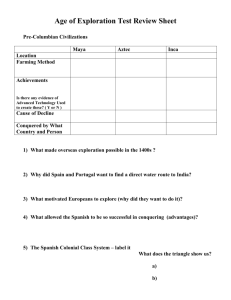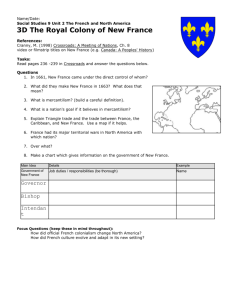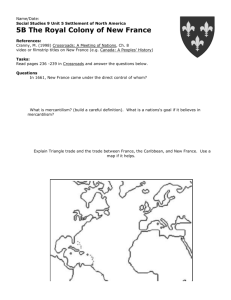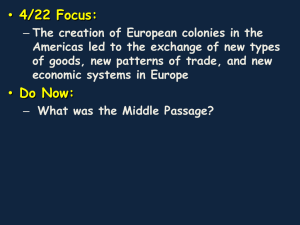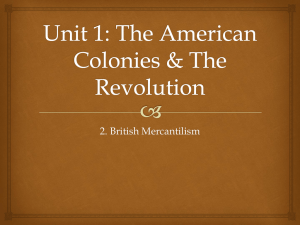Mercantilism - Ms. Zizzo and Mr. Ardis' US History
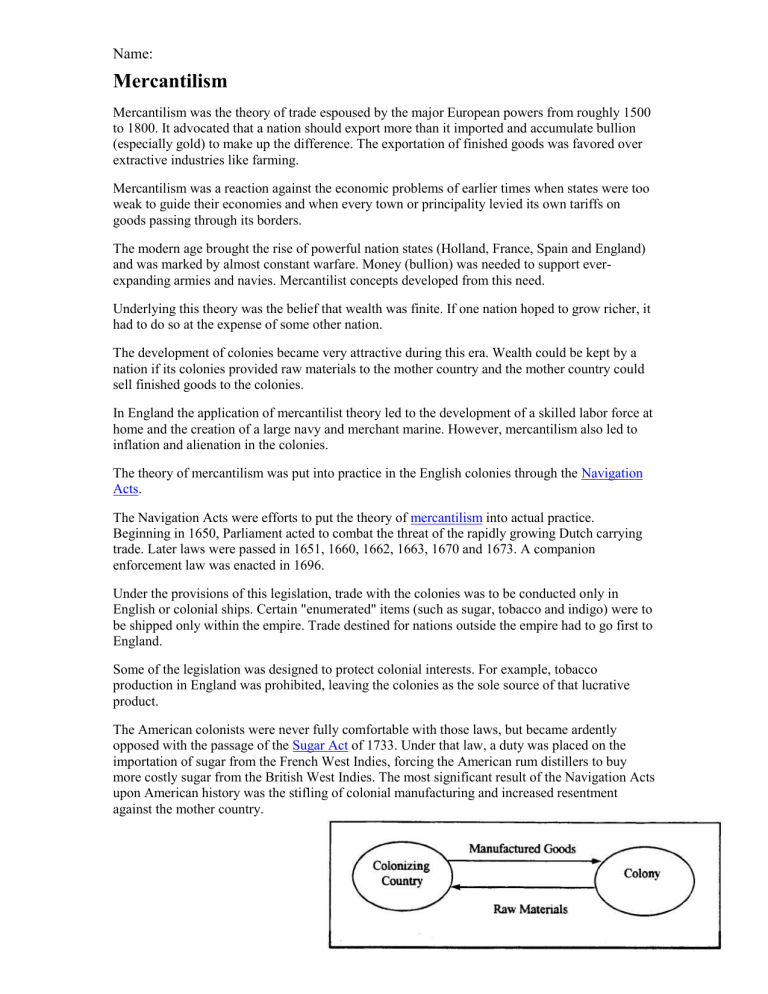
Name:
Mercantilism
Mercantilism was the theory of trade espoused by the major European powers from roughly 1500 to 1800. It advocated that a nation should export more than it imported and accumulate bullion
(especially gold) to make up the difference. The exportation of finished goods was favored over extractive industries like farming.
Mercantilism was a reaction against the economic problems of earlier times when states were too weak to guide their economies and when every town or principality levied its own tariffs on goods passing through its borders.
The modern age brought the rise of powerful nation states (Holland, France, Spain and England) and was marked by almost constant warfare. Money (bullion) was needed to support everexpanding armies and navies. Mercantilist concepts developed from this need.
Underlying this theory was the belief that wealth was finite. If one nation hoped to grow richer, it had to do so at the expense of some other nation.
The development of colonies became very attractive during this era. Wealth could be kept by a nation if its colonies provided raw materials to the mother country and the mother country could sell finished goods to the colonies.
In England the application of mercantilist theory led to the development of a skilled labor force at home and the creation of a large navy and merchant marine. However, mercantilism also led to inflation and alienation in the colonies.
The theory of mercantilism was put into practice in the English colonies through the Navigation
Acts .
The Navigation Acts were efforts to put the theory of mercantilism into actual practice.
Beginning in 1650, Parliament acted to combat the threat of the rapidly growing Dutch carrying trade. Later laws were passed in 1651, 1660, 1662, 1663, 1670 and 1673. A companion enforcement law was enacted in 1696.
Under the provisions of this legislation, trade with the colonies was to be conducted only in
English or colonial ships. Certain "enumerated" items (such as sugar, tobacco and indigo) were to be shipped only within the empire. Trade destined for nations outside the empire had to go first to
England.
Some of the legislation was designed to protect colonial interests. For example, tobacco production in England was prohibited, leaving the colonies as the sole source of that lucrative product.
The American colonists were never fully comfortable with those laws, but became ardently opposed with the passage of the Sugar Act of 1733. Under that law, a duty was placed on the importation of sugar from the French West Indies, forcing the American rum distillers to buy more costly sugar from the British West Indies. The most significant result of the Navigation Acts upon American history was the stifling of colonial manufacturing and increased resentment against the mother country.
Name:
Fill in the boxes based on your understanding of the front article:
Why did mother countries adopt mercantilist policies?
What were the benefits of mercantilism for mother countries?
What were the drawbacks of mercantilism for mother countries?
How did colonists feel about mercantilism?
What were the benefits of mercantilism for the colonies?
What were the drawbacks of mercantilism for the colonies?

